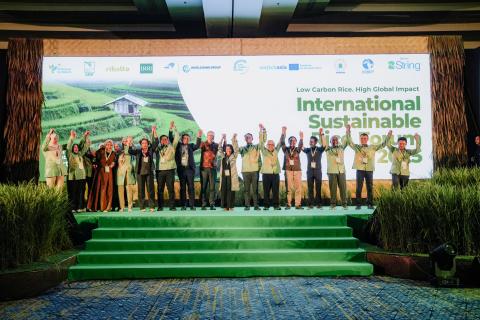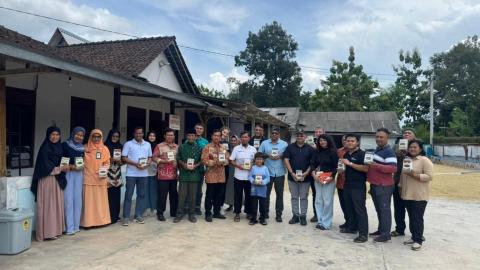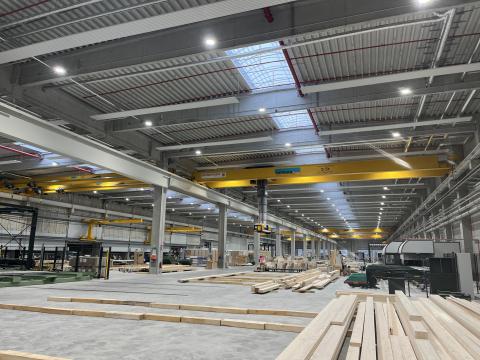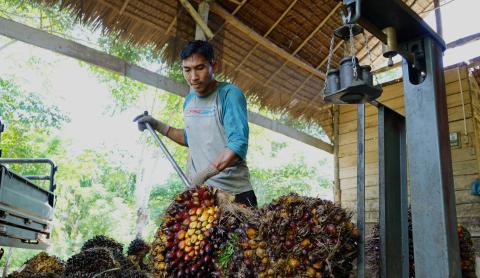Is it legal? New Rainforest Alliance tools offer enhanced assurance for wood products
Rainforest Alliance has sharpened its tools to verify legal compliance of timber products: Its two legality standards Verification of Legal Origin (VLO) and Verification of Legal Compliance (VLC), developed under the SmartWood Program.
Legality verification needed to create fair market conditions
SmartWood Verification Services Manager Christian Sloth says: “The concept of “verified legal” for wood products has gained new importance in recent years. To meet demands, companies find themselves hard at work to document the legality of wood products and reduce the risk that illegal material enters into their supply chains”.
The background for this is a strong worldwide policy trend: The US Lacey Act has banned trade in illegally harvested timber and makes traders in illegal wood products liable to legal prosecution and severe punishment. The EU is currently debating a proposal to enforce regulations requiring the wood industry to implement due diligence systems to control illegal timber trade, while the EU FLEGT scheme aims to increase the availability of legally verified wood and wood products imported to the EU from tropical countries based on voluntary partnership agreements. In addition public and private procurement policies increasingly emphasize proper documentation and verification for the legality of wood products.
According to Sloth, demands for legal wood have important impacts on the ground: “Third-party verification of legal wood could prove to be one of the most efficient tools to combat illegal wood trade and widespread deforestation in the short term. With an estimated value of 15-20 USD billion per year, illegal wood trade constitutes an enormous amount of unfair competition for operations and companies that trade in legal wood. We need good legality verification tools in order to ensure fair market conditions and ultimately promote good forest management and sustainability certification such as FSC”.
Recognized by Greenpeace and Keurhout
The SmartWood standards have been recognized by Greenpeace as the highest ranking timber legality assurance system in a report published in January 2008.
#Based on stakeholder consultations, the standards have now been further amended to serve their purpose even better.
"One of the key improvements of the new VLC standard is the inclusion of broader legality requirements related to proper classification and taxation of wood as well as inclusion of requirements for legal company registration, proper tax payments, and adherence to applicable transport and trade regulations applicable also to processing industry and traders”, says Sloth.
The revised SmartWood legality program was recently admitted to the Dutch Keurhout-Legal program. This implies a market advantage for VLO or VLC verified companies, in particular on the Dutch timber market.
A phased approach to legality – and beyond
SmartWood has established its legality verification system to meet demands for reducing the risk of illegal timber entering the supply chains and thus helping to curb illegal logging, while supporting the expansion of the FSC system. Companies verified to the SmartWood VLO or VLC standard are required to undertake activities for attaining FSC certification.
Recognizing that attaining full certification can require comprehensive investments and take considerable time, legality verification is regarded as part of a stepwise approach where operations can obtain access to more discerning markets and business partners even during the early stages of this process.
The twin legality verification standards are part of the stepwise approach: Verification of Legal Origin (VLO) represents the first step and focuses on the most basic aspects of legality, such as possession of mandatory approvals, permits, and documents. Verification of Legal Compliance (VLC) represents the next step and expands the concept of legality to include legislation relating to broader issues, such as protection of environment and nature, harvesting practices, worker health and safety, and fairness to communities.
DLH – key driver of legality verification
The global timber trade company Dalhoff, Larsen & Horneman (DLH) is strongly engaged in both FSC certification and in timber legality verification.
“There is clearly a market for verified legal, in particular in Western Europe”, says Peter K. Kristensen, Head of DLH CSR & Environment department.
“Recently we have started to feel a pull from Eastern Europe as well, for example our most important buyer of VLO Merbau is based in Poland”.
DLH currently supplies VLO Merbau, Meranti and other tropical species from Malaysia and Indonesia, and is looking to expand its range of VLO products.
This year, DLH is moving its VLO supply in Malaysia to the VLC stage. “Since there are no VLC verified products in the marketplace yet, buyers don’t currently distinguish between VLO and VLC”, says Kristensen. “However, we estimate that the VLC scope is sufficient to meet the requirements of several public procurement policies, while the scope of VLO is too narrow for that. So we do believe that there is a special market for the more developed legality verification systems such as VLC”.
Currently almost 20 operations and companies worldwide are verified to the Rainforest Alliance VLO standard, and several are now embarking on the VLC step. New verification clients are under evaluation in Laos, Brazil, China, Paraguay and Congo.



